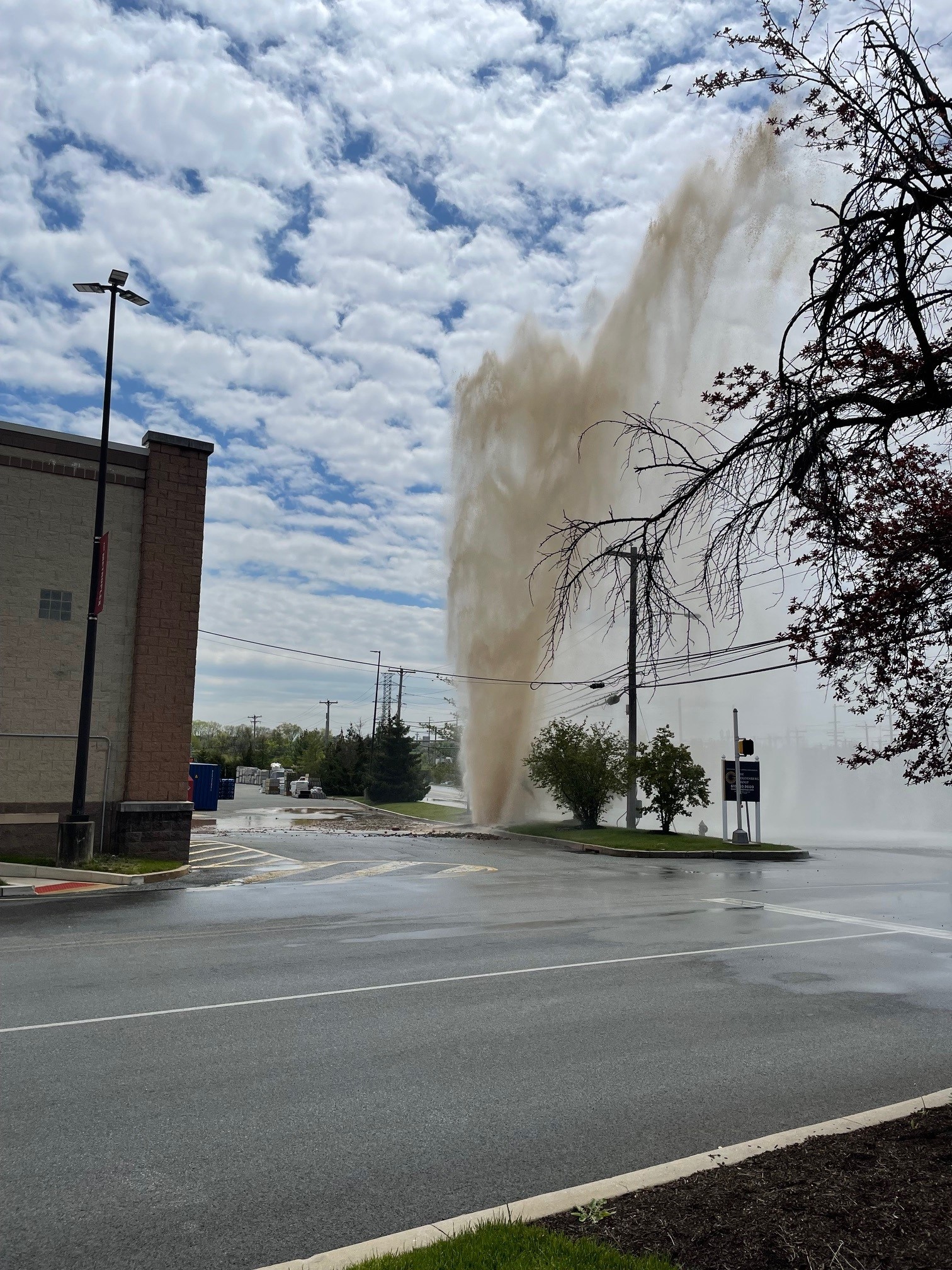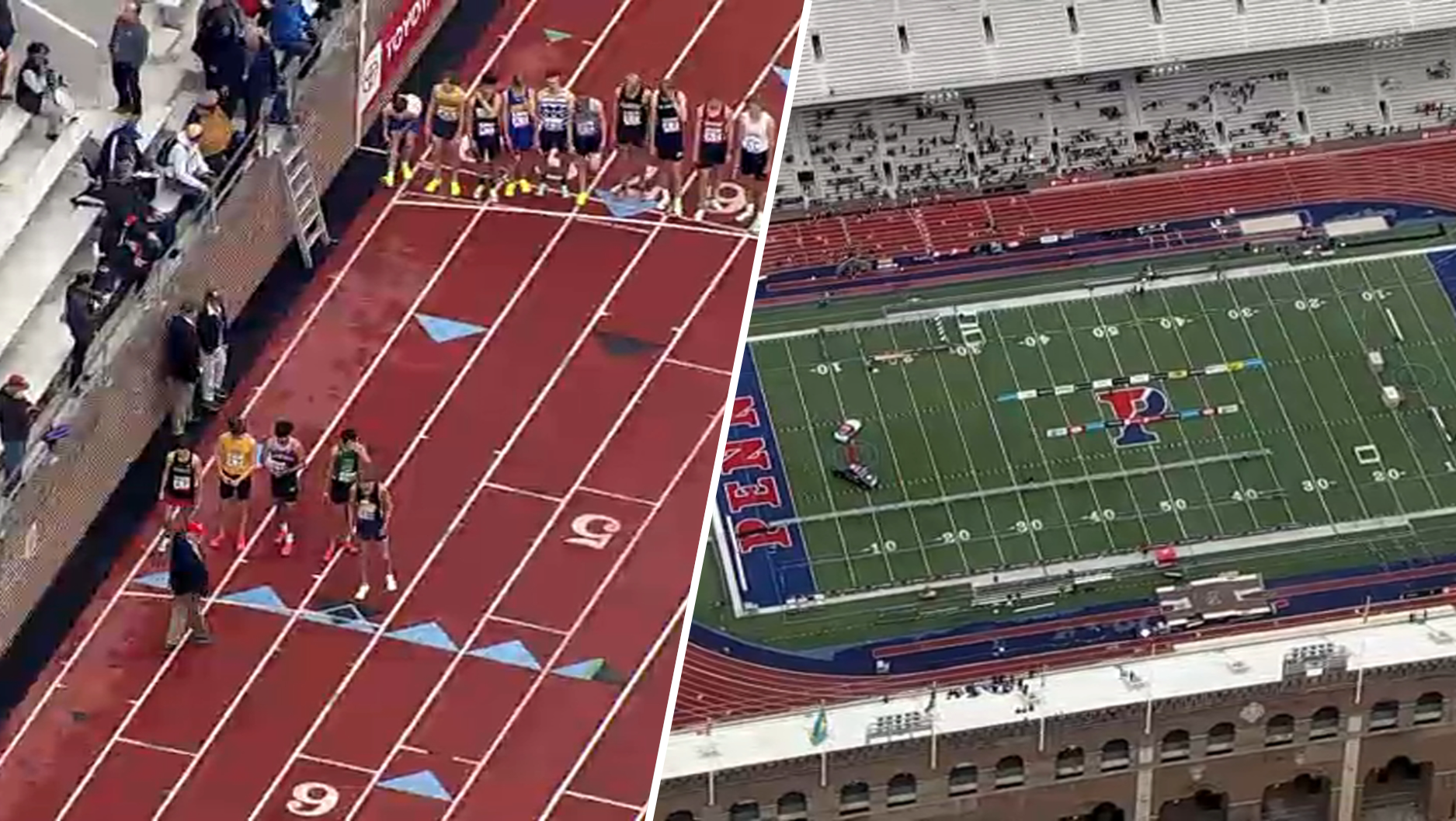We asked veteran political reporter Bob Warner to look at decades of Philadelphia election returns and tell us if racial voting patterns are as clear as so many of us think.
Some pundits look at Philadelphia's mayoral candidates and quickly declare state Sen. Anthony Williams the winner on the basis of simple racial math: one prominent black candidate against two white rivals, and the black guy wins. We've heard this kind of analysis for decades, but is it based on real data, or just assumptions about voting behavior? We asked veteran political reporter Bob Warner to look at decades of Philadelphia election returns and tell us if racial voting patterns are as clear as so many of us think. Here's his report:
The first thing you discover is that basic records on old elections are amazingly hard to find.
Look for ward-by-ward returns before the city computerized vote tallies in 2002, and you find they don't exist online. The city used to publish annual reports with detailed general election results, but they didn't cover primaries.
With advice from a retired city election worker, I tracked down a cache of hand-written election results, going back to 1971 and earlier, bound in unwieldy 2-by-2 foot ledger books and stored in a 5th–floor backroom of the city commissioners' offices.
When I put those numbers on spreadsheets and used census data to identify the racial composition of the city's election wards, a picture of the last four decades of racial voting trends began to emerge.
Local
Breaking news and the stories that matter to your neighborhood.
Much of it confirms the conventional wisdom that Philadelphians vote for candidates of their own race, but there are important exceptions and changes in the pattern over time.
African-American political leaders began organizing serious mayoral campaigns in the 1970's. In the first two decades voting divided sharply along racial lines — partly because of the polarizing presence of Frank Rizzo, the tough-talking police commissioner turned mayor, and partly because there was such excitement surrounding the candidacy of Wilson Goode Sr., who became the city's first black mayor.
Elections since the '80s present a more complex picture. Racial identification in voting remains strong, but the returns show distinct patterns of cross-racial voting in elections where there isn't a racially-polarizing figure on the ballot. In the last competitive mayoral primary eight years ago, African-American Michael Nutter won his highest vote percentages in eight wards where whites outnumbered blacks.
"Race still has some influence, but it's not the way it was when a polarizing figure like Rizzo would run or when Wilson [Goode] ran, the first African-American elected mayor," said Neil Oxman of The Campaign Group, which wrote the political ads that helped Nutter, Goode and Ed Rendell take the reins in City Hall. "The times are past where any black candidate is going to get 97 percent of the black vote," the estimate Oxman attached to Goode's historic race in 1983.
The 70's – black candidates on the ballot
It was the 1971 mayor's race when the first relatively well-known African-American politician appeared on a Democratic ballot for mayor. It was a the late Hardy Williams — the father of state Sen. Anthony Williams, a candidate in this year's Democratic primary.
It was also the year that Rizzo, whose reputation as police commissioner made him reviled among many black voters, made his first run for mayor.
Black voters didn't flock to Williams, because he wasn't seen as capable of winning, and there was some suspicion Rizzo had encouraged his candidacy to take votes away from Congressman Bill Green, the most viable alternative to Rizzo.
Rizzo won the Democratic primary. In the general election, black voters overwhelmingly supported Republican Thacher Longstreth, and Rizzo carried most of the city's white wards by overwhelming margins.
Rizzo won re-election in 1975 by the same formula, defeating a white state senator in the primary and two opponents in the general, including a black attorney and former deputy mayor, Charles Bowser, who ran as an independent and outpolled the Republican, City Councilman Thomas Foglietta.
In 1979, 11 Democrats lined up to succeed Rizzo, and for the first time, a black candidate, Bowser, was considered a potential winner, in part because the Democratic lineup included three white candidates with name recognition: Green, former city controller William Klenk and former city commerce director Albert Gaudiosi.
As the election approached, polls indicated the race was narrowing to Bowser and Green, and with two weeks to go, Klenk and Gaudiosi announced they were dropping out. Some Bowser strategists alleged it was an attempt to consolidate the white vote for Green.
Whether orchestrated or not, that was the result: though their names remained on the ballot, Klenk and Gaudiosi got just 12,000 votes combined. Green won all the city's majority white wards, Bowser won all the black wards, and Green prevailed by 37,000 votes.
Goode makes history
Four years later, former city managing director Wilson Goode mounted his bid to become the city's first black mayor, while Rizzo sought the office again. The fervor on both sides led to extraordinary turnout, with 207,000 more voters than in the primary four years before.
The electorate split sharply along racial lines, with Goode winning all the black-majority wards and Rizzo nearly all the white ones. Among the city's 66 wards, there were just four exceptions to the pattern: Center City's 5th and 8th wards, the 15th ward in Fairmount and the 9th ward in Chestnut Hill/Mt. Airy, all predominantly white wards which Goode won handily with liberal support.
Goode beat Rizzo in the Democratic primary and cruised to victory in the 1983 general election over two white candidates, Republican John Egan and former city controller Tom Leonard. Leonard, a lifelong Democrat, joined the race as an independent, removing the possibility of a direct clash between a Democrat and Republican, one black and one white. Egan supporters openly described Leonard as a "spoiler."
Goode faced a potentially difficult re-election in 1987 after the 1985 MOVE disaster, the conflagration that killed 11 people and destroyed 62 homes in West Philadelphia. Former District Attorney Ed Rendell, who'd run unsuccessfully for governor in 1986, decided to oppose Goode in the Democratic primary.
Goode's first term record was an issue, but his supporters managed to shift some of the debate to a racially-tinged matter: whether Rendell had misled the city's black clergy organization in 1986 about a potential campaign against Goode. How much impact that issue had is uncertain, but the 1987 primary vote divided strictly along racial lines, with Rendell winning every majority white ward and Goode winning every ward dominated by blacks.
The four white wards that had supported Goode in the 1983 Democratic primary all flipped to Rendell in 1987, but the overwhelming margins Goode achieved in the black wards gave him a victory by almost 50,000 votes.
A city in crisis
The city's finances became a major issue after Goode's re-election. When the city chose a new mayor in 1991, Philadelphia was reeling close to insolvency. Two black Council members, Lucien Blackwell and George Burrell, and two white candidates, Rendell and attorney Peter Hearn, stepped into the Democratic primary.
Rendell won handily, with more votes than his three opponents combined. While Blackwell carried most of the city's majority-black wards, Rendell won two of them and frequently got 15 to 20 percent of the vote in the rest. Rendell's victory pointed to a successful formula in races between well-known white and black candidates: running well among voters of your own race and winning a measure of support among those who aren't.
Street steps up
The 1999 Democratic primary to replace Rendell featured three black candidates — City Council President John F. Street, state Rep. Dwight Evans, the powerful head of the House Appropriations Committee, and former City Councilman John White. There were also two white candidates, former city solicitor Marty Weinberg, who had been one of Rizzo's closest advisers, and City Councilwoman Happy Fernandez.
Two of the black candidates, White and Evans, were seen as having some appeal to white voters. But Street, known for fiery rhetoric, some memorable confrontations with white council members and his association with his activist brother Milton, was less appealing to whites.
None of the Democratic candidates made race an issue in their campaigns, but the unopposed Republican candidate, Sam Katz, took an unusual step with racial overtones. He bought TV advertising to attack both Weinberg and White and helped deliver the Democratic nomination to John Street, setting up a black/white clash in November.
Katz got the match-up he wanted — a contest against Street, who was viewed as the least acceptable candidate to white voters. But he came up just short in the general election. Despite a Democratic registration edge of more than 3-to-1, Katz outpolled Street in all but four of the city's majority-white wards and lost the election by just 9,500 votes, the closest general election in our lifetimes.
The 2003 election was a rematch between Street and Katz. There were some racial undercurrents all along, but they escalated with the discovery of an FBI listening device in Street's City Hall office, just a month before the election. It became clear that Street was under federal investigation.
But instead of helping Katz, the probe was depicted by Democratic party leaders, both black and white, as an effort by the Bush administration to oust a black Democratic officeholder. The argument took hold in the city's black majority wards and Street won re-election by nearly 78,000 votes.
2007– signs of change
That leads us to the 2007 election, a seven-way race with three prominent blacks — Nutter, Evans and Fattah — and two prominent whites, Brady and Knox. None of the candidates were regarded as racially-polarizing figures.
For the first time, city contribution limits, spurred by the Street administration scandal, cramped fund-raising. Knox got out to an early lead by donating and spending more than $10 million on his own campaign, stressing his business background. A Nutter proposal to encourage more "stop and frisk" activity by police officers raised some hackles in minority communities that have long complained of police abuse, but the other candidates did not jump on the issue.
Nutter had been one of the architects of the new campaign finance laws and he focused on corruption in City Hall. Late in the campaign, a political action committee organized by Mayor Street's nephew developed campaign spots against Nutter, based on stop-and-frisk, and the Electricians' Union, Local 98, illegally distributed anti-Nutter flyers with a similar message, but neither effort had much traction.
Nutter wound up winning the primary by a comfortable 35,000 votes in an election with significant cross-racial voting. He won 29 of the 30 black-majority wards and 8 of the 36 wards with white majorities. His largest percentages came in those eight majority-white wards.
The bottom line: it appears race has played a major role in most of the mayoral elections of the past 45 years.
The size of that role varies greatly depending on the candidates and the issues that they and the voters pay attention to. After electing three African-Americans among the city's last four chief executives, there's no real novelty attached to the idea. And in the most recent elections, there are signs that Philadelphia voters may be paying less attention to race and focusing on major issues that cut across all racial lines.
"Why would a typical middle-class black couple, or white couple, care about the race of someone running for mayor?" asked Daniel Fee, a Philadelphia political consultant without any clients in the current mayoral field.
"They'll have more important things to worry about – where their kids are going to school, what's going to happen with their property taxes. Before there may have been some belief that specific issues were localized, whether they involved crime, urban blight or lack of economic opportunity....Now the issue is schools and that is something that clearly affects all communities."



